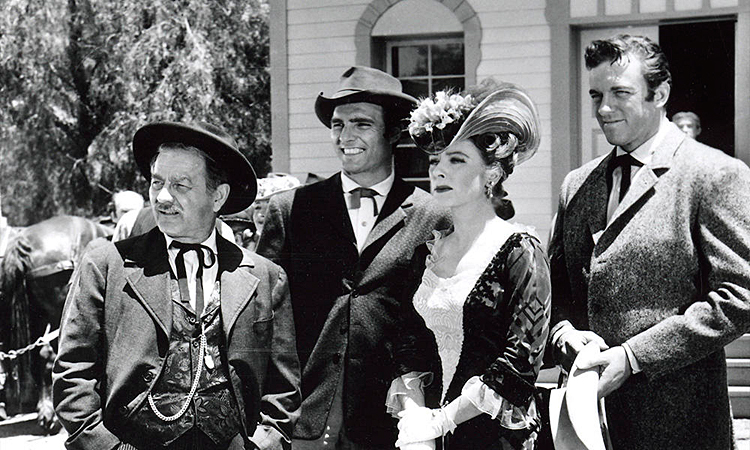
Among the channels proliferating via Dish Network I’ve recently taken to watching reruns of old network TV westerns. I watched many of these episodes when I was 10 or twelve years old, black and white westerns about good guys and bad guys and the women attracted to both.
In shows like “Gunsmoke,” “Lawman,” “Cheyenne,” and “The Rifleman” it was easy to identify the good guy, invariably the hero. He sometimes wore black, sometimes white, but that didn’t matter; the TV western hero was selfless, brave, rugged and a swift, efficient killer. The hero took no joy in killing, but it was the price he paid to uphold the law. It helped that TV death in 1960 was all but bloodless; put down by a clean fast shot, the villain would spin to the ground dead as a door nail. No muss, no fuss. Things certainly have changed on that score.
Today’s TV rarely includes any westerns, but good guys and bad guys are still shooting at each other. As for blood, it’s all over the place. Pools of blood under bodies, blood spattered on walls, blood spurting from gunshot wounds. And blood is just the beginning of it; today’s entertainment combines gallons of blood, scattered brains and blown up body parts. Torture, sexual violence, cannibalism and everything in-between fill the public airwaves morning to night. By today’s standards, Marshal Matt Dillon acts more like a goody-two-shoes schoolmarm than lawman.
As for the women, the old westerns portrayed them as either vulnerable females in need of protection or tough saloon-keepers like “Kitty” who knew how to keep their “girls” and town drunks in line. The gals of 1850 as presented in 1960 wore clean clothes, make-up, salon-styled hair, frilly dresses, and occasional jeans. Either daughters, wives or barmaids, they were at the center of plots about love (found or lost), revenge, jealousy, and betrayal.
Today’s women on TV range are often sweaty marshal arts experts with bare upper arms and brainy but overtly sexy detectives ready to shoot villains. TV cops are now as likely to be women as men. On the other hand, extreme violence against women is epidemic on today’s flat screens.
Depicted as victims of crime, women surely stimulate feelings of compassion in viewers, but the scenes of torture and abuse of women makes me wonder about the writers of today’s TV. Do misogynist male writers have a role to play in such drama? Perhaps the public has become so predictable that scripts are written by computer using various preprogrammed story options? What the popularity of today’s cop show says about the possibility of public preference is yet another matter. If the proliferation of blood, guts and violence is in response to viewer preference, then our culture has tapped into a terrible dark corner of the human soul that might well be better left alone to shrivel-up.
The joy of watching old westerns is precisely in their innocence. Both the values and the depictions of those values in action point to the qualities in people that we should admire and enjoy: honesty, devotion, kindness to children, others and animals, courage, good-humor, fairness and justice. These are also the qualities of a good society.
Not only have we lost our innocence, I’m afraid. It appears we have completely lost our way.